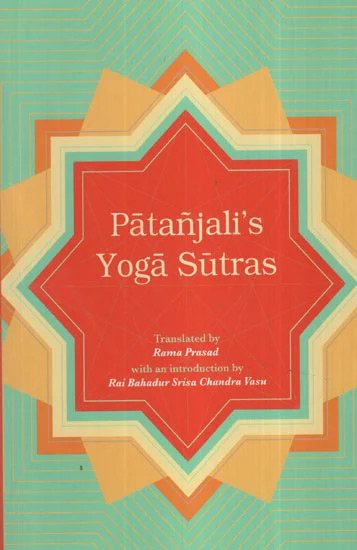Yoga-sutras (with Vyasa and Vachaspati Mishra)
by Rama Prasada | 1924 | 154,800 words | ISBN-10: 9381406863 | ISBN-13: 9789381406861
The Yoga-Sutra 1.31, English translation with Commentaries. The Yoga Sutras are an ancient collection of Sanskrit texts dating from 500 BCE dealing with Yoga and Meditation in four books. It deals with topics such as Samadhi (meditative absorption), Sadhana (Yoga practice), Vibhuti (powers or Siddhis), Kaivaly (isolation) and Moksha (liberation).
Sūtra 1.31
Sanskrit text, Unicode transliteration and English translation of Sūtra 1.31:
दुःखदौर्मनस्याङ्गमेजयत्वश्वासप्रश्वासा विक्षेपसहभुवः ॥ १.३१ ॥
duḥkhadaurmanasyāṅgamejayatvaśvāsapraśvāsā vikṣepasahabhuvaḥ || 1.31 ||
duḥkha—pain, daurmanasya—dispair, dejection, aṅgamejayatva—shakiness. śvāsa—inspiration, praśvāśāḥ—and expiration, vikṣepa—of distraction. saha-bhuvaḥ—companions.
31. Pain, despair, shakiness, inspiration and expiration are the companions of these distractions.
The Sankhya-pravachana commentary of Vyasa
[English translation of the 7th century commentary by Vyāsa called the Sāṅkhya-pravacana, Vyāsabhāṣya or Yogabhāṣya]
[Sanskrit text for commentary available]
Pain is either from one’s self, or from external terrestrial objects, or from the powers of nature. Pain is that affected by which people try to do away with it.
Despair is the condition of the mind consequent upon the non-fulfilment of some desire.
Shakiness is that which causes the organs to shake.
Inspiration is the action of the life-force drinking in external air. Expiration is that which throws out the internal gas.
These are the companions of the distractions of the mind. They appear in him whose mind is distracted. They do not exist in him whose mind is entranced.
The Gloss of Vachaspati Mishra
[English translation of the 9th century Tattvavaiśāradī by Vācaspatimiśra]
Now he says that it is not only the nine obstacles, but that pain, &c., too appearing as their companions, act similarly:—‘Pain, &c.’
Pain is that which is cognized as being contrary to the mind for the time. It is from one’s self, when it is either bodily such as caused by disease, or, mental, such as caused by desire, &c. It is from external causes when it is caused by a tiger, &c. It comes from the powers of nature when it is caused by such things as the planetary influences. All this pain is cognized by every living creature as contrary to one’s being. It is, therefore, to be removed. This is what he says ‘Affected by which, &c.’ When physical life drinks in, i.e., takes in external air contrary to one’s wish, the act of in-breathing becomes contrary to the branch of Yoga known as the Recaka, the conscious out-breathing). When physical life expels the internal air against wish, the act of out-breathing is contrary to the branch of Yoga known as Pūraka, the (conscious in-breathing).—8.
